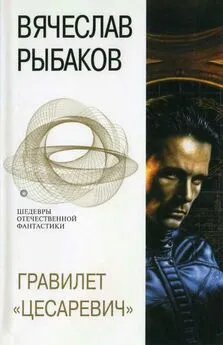Владимир Орловский - Машина ужаса [Фантастические произведения]
- Название:Машина ужаса [Фантастические произведения]
- Автор:
- Жанр:
- Издательство:Leo
- Год:2018
- ISBN:нет данных
- Рейтинг:
- Избранное:Добавить в избранное
-
Отзывы:
-
Ваша оценка:
Владимир Орловский - Машина ужаса [Фантастические произведения] краткое содержание
Машина ужаса [Фантастические произведения] - читать онлайн бесплатно полную версию (весь текст целиком)
Интервал:
Закладка:
Then Deriugin asked for the floor, and briefly summed up the situation on hand:
“The process is enlarging and growing. To wait till the obstinate work of the brain or a fortunate chance or accident will disclose to us a method or a means to stop it — is unthinkable. We must do now, at least, whatever is possible; we must check the further movements of the sphere — arrest it…”
The hall reverberated with exclamations of wonderment, almost indignation, on the part of the assembled scientists. Some delegates openly declared that they had not come there to listen to the hollow prattle of dilettanti.
Deriugin, having waited till the noise subsided, asked that he be heard carefully till the end. And concentrated attention, a few minutes later, was the answer to his speech.
His project had the following salient points: to adjust upon a huge caterpillar-tractor, moving at a speed of 40 kilometers an hour, a powerful dynamo, fed by electric motors of several thousand horsepower. Its current should pass through the armature of the electromagnet, thereby supplying the latter with colossal force. Four — five such colossal magnetos, in Deriugin’s opinion, would suffice to cause the sphere to move against a moderately blowing wind to reach the magnet poles.
Of course, the execution of the project demanded a colossal effort and a large sum of money. Germany was not the only country where precautions were necessary. It was of paramount importance to organize a system of construction of electro-magnets in several points on the continent, because it was impossible to foretell whither the tide would toss the strange enemy in the near future. Besides, the work would have to be completed in the shortest possible time; else it might be too late. The operations seemed very difficult, indeed — almost beyond possibility of fulfilment — but upon them rested the fate of mankind. It was absolutely necessary to try.
All this was so evident, that it did not provoke any disputes or discussions. After a brief exchange of opinions, it was decided to appoint a commission to work out every detail of the project proposed by Deriugin.
In addition to that, the assembly decided to bring the case before the people and appeal to the government to immediately appropriate an adequate sum of money in order to carry out the work. Similar appeals were addressed to all the scientific societies and to the governments of the other countries, urging them to join in the common cause.
THREE weeks had passed. Old Europe was crumbling on every step. From one end to the other, by the will of the wind, hovered the flaming sphere, increasing steadily in size and sweeping away everything that was alive. Cities and villages were burning, forests were aflame, day and night enshrouded the sky with curling clouds and asphyxiating smoke. Meadows and fields in ever greater strips, were* becoming reduced into carbonized deserts, stretching in winding ribbons over the map of terror-stricken Europe.
Crossing the Polishborder, the flaming sphere on the same day reached Torna and, passing over the fortress, it destroyed two forts, several batteries and some large powder-depots. The city proper, remained on the safe side of the moving atomic whirl, but it suffered much from the explosions in the forts; the number of dead and wounded reached several hundreds.
The news of the Toma catastrophe reached Warsaw Saturday evening.
Sunday morning an enraged mob broke into the building of the German Consul General and ransacked it, due to a rumor that had passed amongst the people, that "the Germans were at the bottom of everything,” and that the approaching disaster was intentionally precipitated upon Poland by Germany. In the churches, the bells were ringing and the Miserere was solemnly being sung; people were imploring the Lord to rid them of the elemental disaster. An endless procession, with cross and banners, wound through the streets, and the blue smoke of the censers rose high into the bright sky. East of Warsaw a chain of batteries stood ready to meet, at midnight, the unwelcome enemy with the thunder of their metallic mouths. This was the mobilization of religion and science; heavenly and earthly army.
At two in the afternoon, the enemy appeared. Enveloped in a halo of smoke, the flaming sphere moved along the shore of the Vistula, setting the forests of Belian and Mlotzin on fire. The chain of batteries, lined up in front of the fortress, was broken up in twenty minutes, the arsenal was blown to pieces and ten minutes later the sphere burst into the streets of the city. The bells were silenced, the procession was dispersed in panic, fright and horror. Cries of despair, the hissing of the flames, the crackling of breaking glass and the roar of falling walls signified the course of flight of the atomic vortex. A quarter of an hour later, having laid waste the New World and Lazenki, it disappeared in the direction of Mokotow; behind it the vast city roared and sighed in smoke and flame.
The burning of Warsaw served as an impetus to force the other nations to join the movement sponsored by Germany. Fervidly interested became the world’s greatest scientists, such as Rutherford, Bohr, Aston and many others. Laboratories worked day and night; lathes and machines roared full-throatedly in the ironworks; metal grated against metal and one after another there appeared upon the Earth iron and brass giants that were to combat the inexorable foe.
Toward the end of the week, Deriugin was commissioned to Paris to set aside all the difficulties that impeded the work in the Creusot ironworks. From there he was- supposed to go to Genoa, where the works of Italy were concentrated. The flaming sphere, meanwhile, continued its course over Europe, leaving in its wake fires, devastation and thousands of victims. Passing Warsaw, it set fire to Kovel and then disappeared for some time in the marshes of Poliesie. Thence it moved southward, flying between Kiev and Zhitomir and wiping Ouman completely off the map, it descended over the river Boog, then brushing by the eastern outskirts of Nikolaev, it wended its course over the Black Sea.
The destruction caused by it began to assume actual cosmic dimensions. Aside from the fires and victims, now it bore with it new calamities. Dreadful thunderstorms and hurricanes of unusual proportions — similar to tropical showers — were descending from the atmosphere which was pregnant with vapors from the rivers, lakes and seas, caused by the immense heat that had been radiating from the destroying globe.
Passing through the Balkan Peninsula and inflicting great damage and suffering on Belgrade, the fiery vortex, by way of Tyrol and Baxaria, entered France, and devastating the north-eastern comer, disappeared into the ocean. At this point, between Cologne and Paris, it was met by Eitel Flinder.
The turbulent days, after the death of his father, bore heavily upon the young man. He was completely lost in the chaos of strange occurrences. Ever since the time he had spoken to Hinez, after his father’s funeral, he found it impossible to collect his thoughts, or direct them along proper and sound channels. The strips of fires and min that had swept over Europe seemed to have cut deep crosses into his breast. He could not, under any circumstances, reconcile himself to the fact that his father was the cause of the disaster now ravaging all Europe. Besides, his old hatred for Deriugin, about whom he continued to hear and read daily, had not ceased for a single moment. And despite the fact that he could not himself explain on what this strange feeling toward the young Russian was being fed, yet, in his utter ignorance, he did not notice how that feeling of reasonless malice was gradually changing into the blind conviction that, it was the Moscovite, who was the cause of his father’s death, as well as of the dreadful nightmares that continued to ravage all of Europe for the last three weeks. Though the thought was wild, without any foundation, still it continued to torment the weak mind of the young Hussar. He felt certain that all misfortunes emanated from Moscow, for, while the fiery sphere had only grazed a small part of the Russian territory, it had played great havoc everywhere else in Europe. And without giving due consideration to his actions, Eitel turned about face to Paris, right on the heels of his detested foe.
DERIUGIN was no longer in Paris. Though hot on his trail, Eitel did not follow him immediately to Italy. In these days of frightful nightmares, it was not easy to travel from one country to another. All depots were beleaguered by enormous crowds of people. Bloody encounters were fought in order to get into a railroad car. The immense city was in hot delirium. Eitel observed with timid curiosity the panic which possessed the human ant-hill and it found a live response in his own heart. And what he saw redoubled his hatred for the supposed author of the unprecedented catastrophe. Paris was dying before his eyes.
All this occurred two days before Eitel’s arrival in Paris. As soon as the news about the appearance of the atomic vortex in the Vosges and about its movements westward were received, an unprecedented confusion broke out on the Bourse. The most solid values tumbled with amazing speed. In the next twenty-four hours, several of the largest concerns in the country were forced to discontinue payments. Hordes of people hastened to withdraw their money from-the banks. In a word, it was an ordinary financial panic multiplied several times by ten.
A human sea inundated the streets and squares of the city and splashed out there all its hatred, malice and fear that was kept locked within the stony boxes— their houses. Here and there, amid the living tempestuous stream, gonfalone fluctuated and statues of saints and of the Madonna vascilated on their litters in the processions that implored Heaven to deliver them from the impending disaster. Improvised choruses alternated, church bells pealed and women shrieked.
On the day of Eitel’s arrival in Paris there appeared in “Figaro” an article which played the role of a barrel of gasoline poured upon an incipient fire. One of the most renowned authorities in the field of radioactivity was summing up the course of events and reached the following definite conclusion: that the earth was coming to an end, that man is in no position to arrest the breaking up of the atoms within the atomic vortex, that by now the speed of its growth has been constantly progressing, that it is expected in the near future to reach colossal dimensions and velocity, precluding almost an immediate cataclysm. This is imminent and seemed only a question of time. Any struggle with the enemy was fruitless and ridiculous. Civilization has fulfilled its mission, reached its culminating point of development and must leave the stage…
As an aftermath of the article, it appeared as if some sluices have opened in the gigantic city as well as in the hearts of the people. Prayers and anathemas, wailing and sighing, licentious songs and gospels of priests were intermingled and rolled into one. Throngs of insensates appeared in the streets. Some raised their hands to heaven in mute prayer, others openly gave vent to wild profligacies. One great financier and millionaire, now the possessor of only worthless securities, appeared on the balcony of his palatial residence and gazing down upon the maddening crowds, he began to tear into shreds, notes and paper currency worth hundreds of thousands of dollars, shouting in wild frenzy:
“Our earth is coming to an end! It’s the end of the world!”
The wild scenes completely possessed Eitel’s mind. He was certain now that he was summoned from above to save the Earth from the impending destruction and, the only way to accomplish this, was to wipe off from the face of the Earth that person who, in his opinion, was the embodiment of all the dreadful occurrences.
Читать дальшеИнтервал:
Закладка:
![Обложка книги Владимир Орловский - Машина ужаса [Фантастические произведения]](/books/1096680/vladimir-orlovskij-mashina-uzhasa-fantasticheskie-pr.webp)

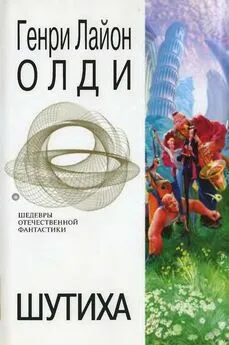

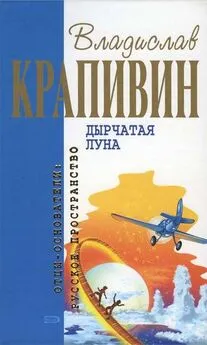
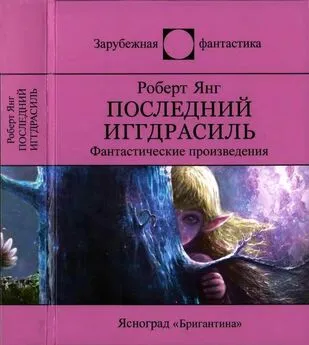

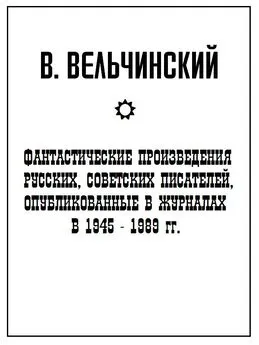
![Гарри Гаррисон - Пропавший лайнер : фантастические произведения [сборник]](/books/1086200/garri-garrison-propavshij-lajner-fantasticheskie-p.webp)

